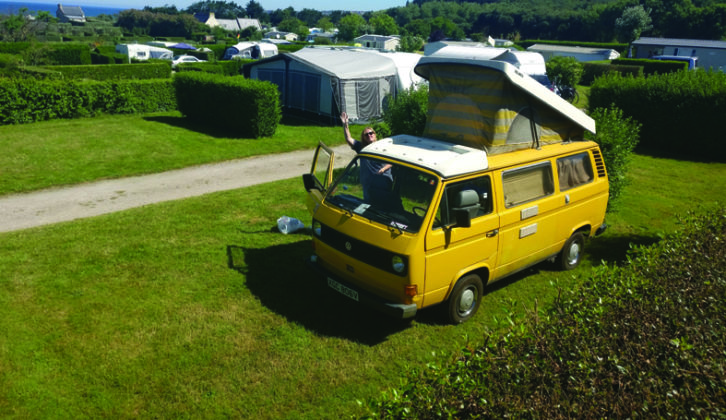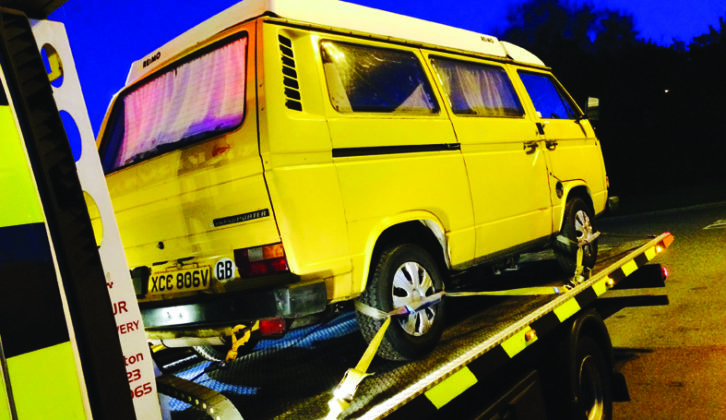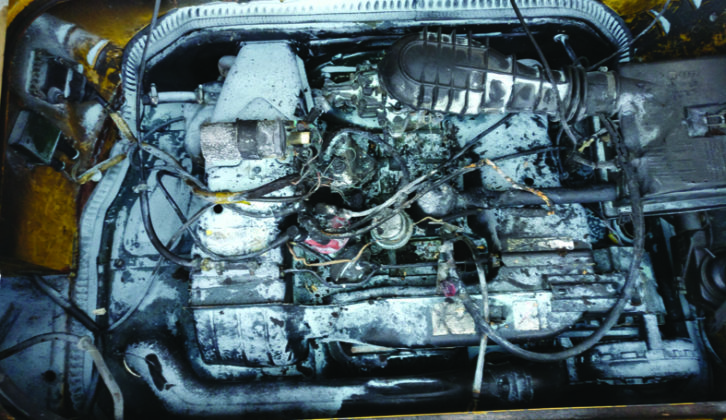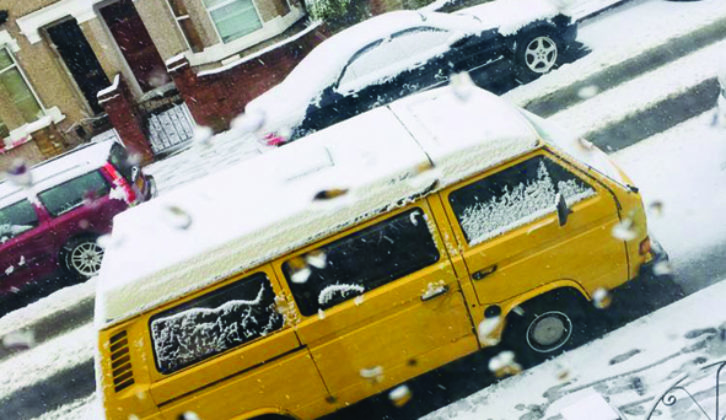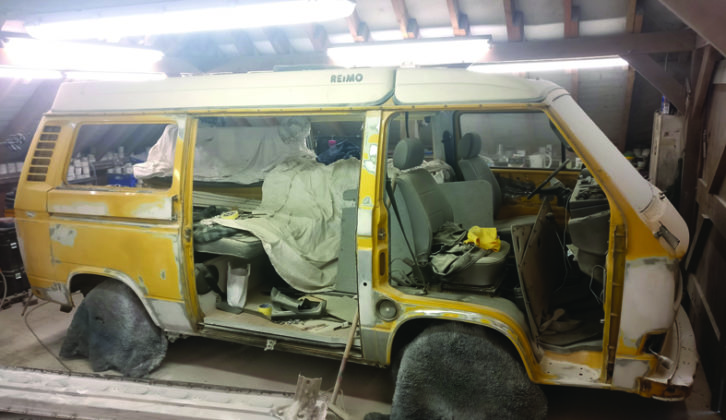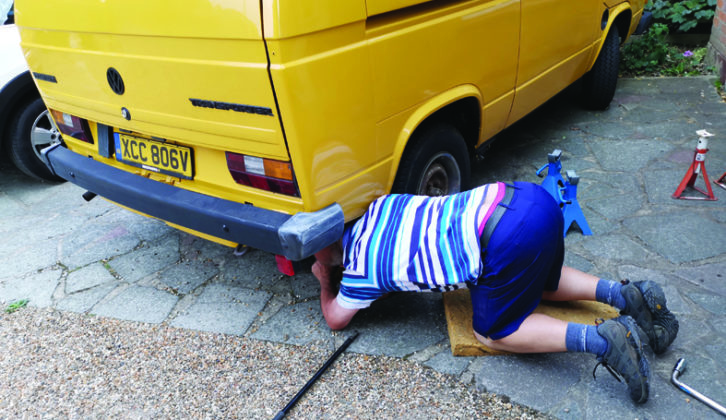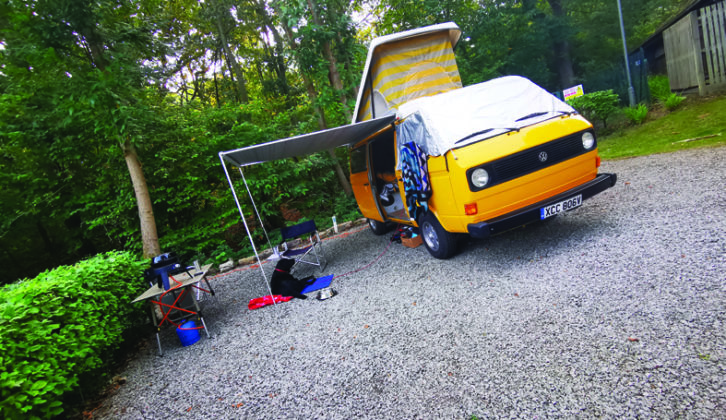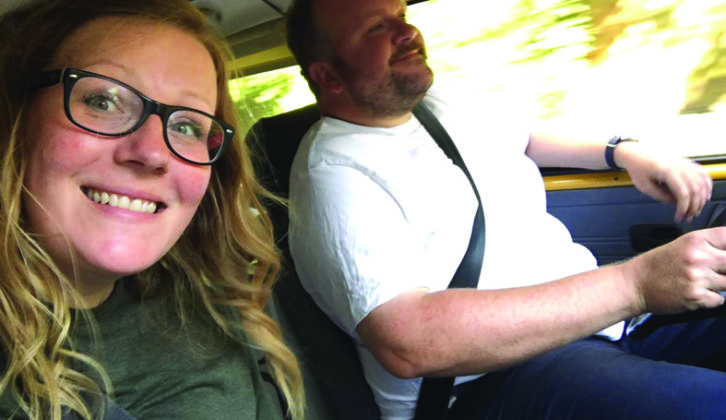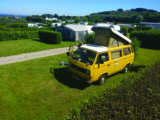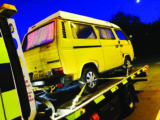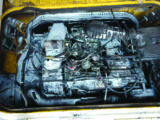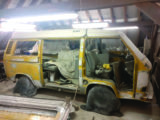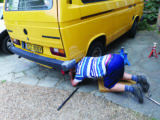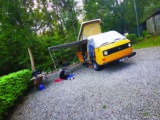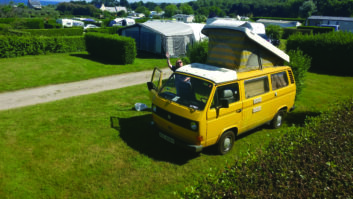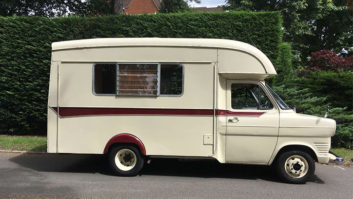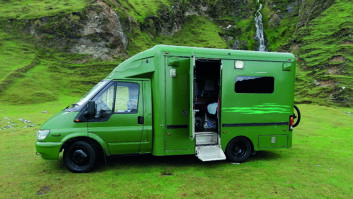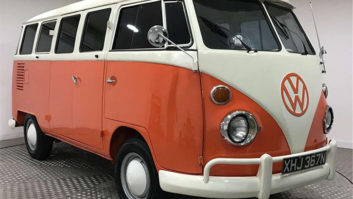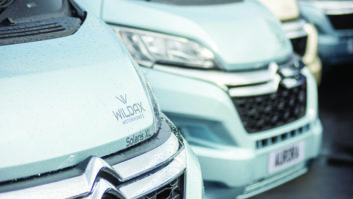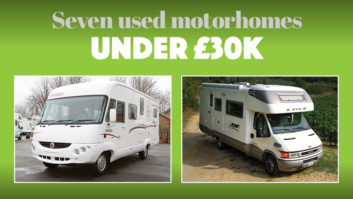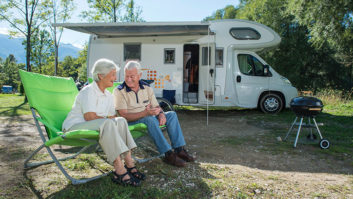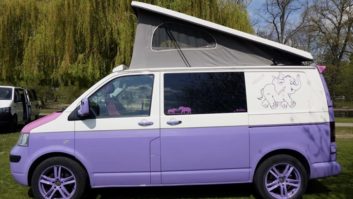The idea of life on the road is exciting, but for many potential owners, motorhome cost is a major hurdle. Sorting a first ‘van purchase can be an expensive business and working out where to start needs careful consideration. Here are the pros and cons of owning a classic campervan, as experienced by campervan owner Nigel Donnelly
If you are on a tight budget, the popular options are borrowing money or self-building The third option is to buy something older. It will lack the mod-cons of a modern motorhome, but if the aim is to travel and explore, it shouldn’t matter how much you spend, right?
That was very much our thinking as we started researching our best route into motorhome ownership. A limited budget wasn’t our only stumbling block. We needed to park the vehicle in the street – we have no driveway. We didn’t want to street-park a coachbuilt, so we had to opt for a van conversion. We didn’t have the cash for a posh modern model, so our budget dictated that we needed something older.
Location, location, location
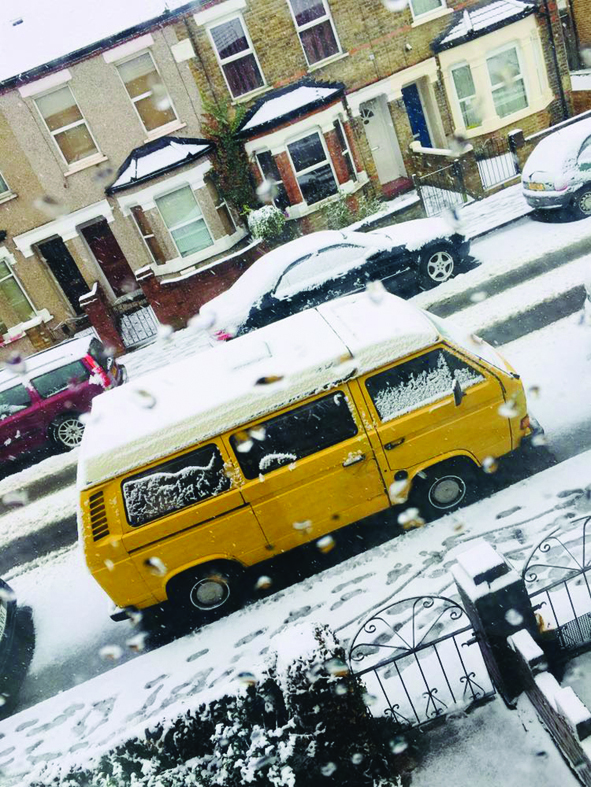
The final limitation for us is our location. We live just inside London’s Low Emission Zone and that severely limits the commercial vehicles we can have. Most of the old commercial vehicles are diesel-powered and the majority are excluded, so we needed something that was modern (too expensive), small enough not to be classed as a commercial, or petrol powered. These factors gave us the shortest of shortlists.
In the end, the choice of an older VW made the most sense. There are loads of them about, parts are easy to get hold of and what they lack in sophistication, they make up for in simplicity.
We decided against the pretty T2 ‘bay window’ models, based on budget as much as anything. Shopping carefully, you might be able to unearth a petrol-powered T4 conversion, but the obvious choice for us was a T3 ‘Wedge’. Built between 1979 and 1991 for European markets, we felt these were modern enough to be usable, but classic enough to be worth investing in. We also thought that with a classic veedub, we’d have the best chance of getting some money back when it was time to move it on. We would be lying if we said we didn’t love the way they look, too!
Target acquired
Finding a Wedge isn’t actually that difficult. They were in production for years and the popularity of Volkswagen commercials among fans means they were being cherished long before anyone thought of doing the same with Ford Transits or Leyland Sherpas of the same era.
We started by scouring all the websites you might expect – eBay, Preloved and Gumtree all had a selection of ‘vans which seemed to fall into two categories: disasters and minters. There didn’t seem to be much in between. Those that did look good were often at the wrong end of the country or cost more than we could afford.
On a Friday afternoon scroll through Gumtree, we came across a very early 1980 Transporter which looked as though it fitted the bill – this was a proper camper conversion, rather than just a mattress slung in the back of a van, with an elevating-roof, and it was a cheerful yellow.
A quick call to the owner told us she referred to the ‘van as ‘Wilma’ and had enjoyed owning her, but was emigrating, so had to sell. She was local and we arranged to view on Sunday morning.
We took a look and Wilma was plainly quite scruffy and needed a service, but looked a good base for a travel ‘van.
She wasn’t home-made, but a Reimo conversion, with a low-profile elevating-roof, three-way fridge, gas heater and onboard water tank. She even had double-glazed windows and a receipt for a replacement engine. Crucially, underneath all of those bumps and scrapes was a vehicle that wasn’t eaten up with rust.
A price was agreed and we set aside an extra £3000 for tidying up the bodywork. We thought that we would have a proper, if basic, campervan for around £8000.
Buyer beware
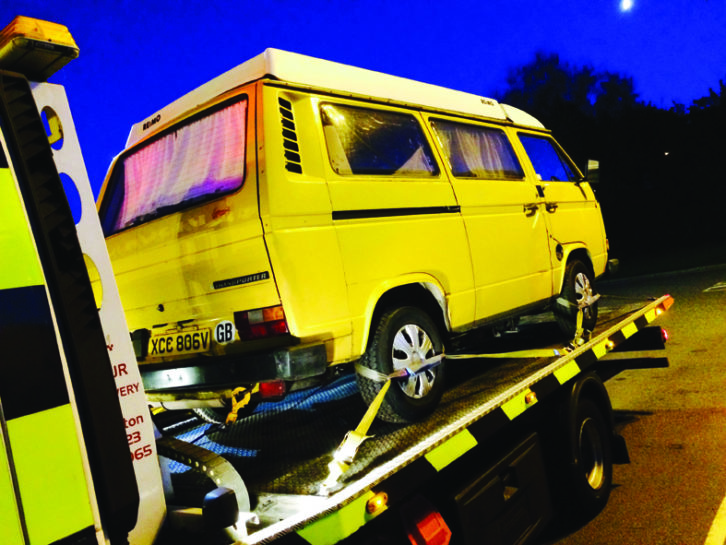
Advice when buying secondhand cars or campers is in good supply online, in magazines and from learned mates, but when you are stood in front of a vehicle that you like, talking to someone who is plainly attached to it, it’s amazing how common sense can completely desert you.
I’ve bought loads of old vehicles in my time and I know you don’t buy the first one you see. You would also be wary of one that is difficult to start, and you should, of course, carefully scrutinise the paperwork supplied with it. I did none of that. We got swept up in the excitement of seeing the ‘van, paid a deposit and collected it a few days later.
The signs were there right away. The air-cooled engine sounded well enough, but when hot, had a nasty habit of cutting out. Our first extended journey, from London to Somerset, ended on an AA truck, and an engine strip down revealed that a rebuild was needed.
Rebuild required
I thought it was a bit strange for a replacement engine to need a rebuild, but belated inspection of the paperwork supplied with the ‘van showed that the engine was actually a decade old.
In fact, all of the paperwork was also at least a decade old, apart from a couple of recent MoTs. By the time the engine was rebuilt, with a new exhaust system as the old one had rusted away, we had a bill for almost £2000, leaving little of our contingency for further improvements.
We managed to grab a few weekends away, with the engine work done, but it wasn’t long before we encountered more reliability problems, culminating in an engine fire that seriously threatened the ‘van’s existence. The insurance company wanted to write it off, giving us back what we had paid.
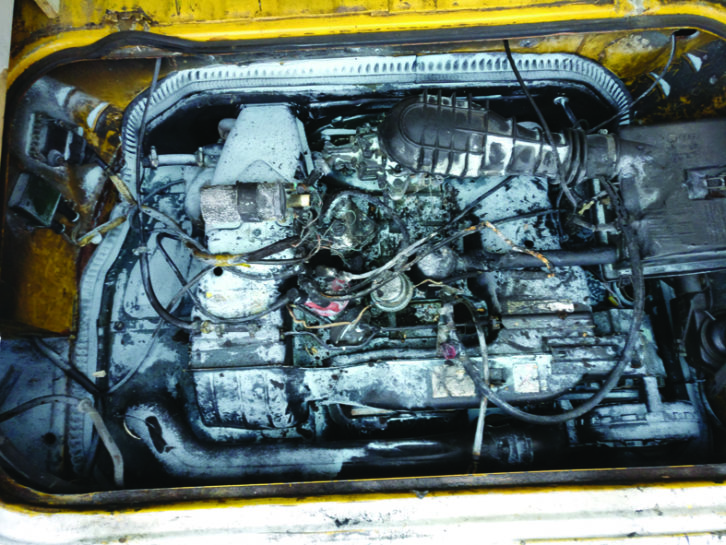
After much consideration, we let our hearts rule our heads and took Wilma to Combe Valley Campers, in East Sussex, who offered to get her back on the road and iron out any other reliability issues they found during the work.
The insurance paid out £1200 towards repairs, but the level of neglect that the ‘van had suffered over its 35 years meant the bills kept racking up.
Repaired and refurbished
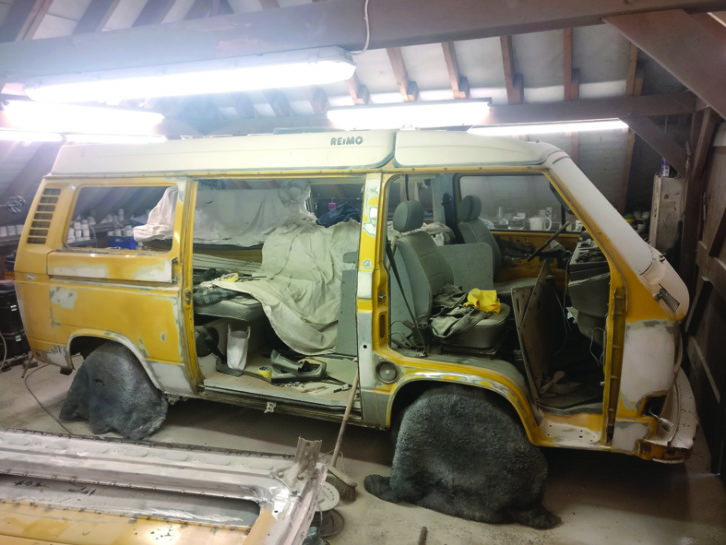
We ended up spending £6000 plus the insurance money, but the ‘van we got back was a very different vehicle. As well as repairing the fire damage, Combe Valley Campers replaced the entire fuel system (which had caused the fire), refurbished the brakes, and identified the steering and suspension problems that had made it such a tiring thing to drive.
By this stage, we were committed to the project, so we opted for some upgrades, too. New carburettors for reliability, a rewire of the habitation area, retrimmed front seats – we added power steering as well. We got Wilma back and reliability was definitely improved, to the point that we were happy to embark on longer trips, to Cornwall, East Anglia and across the Channel.
Despite this, the spending never really stops with an older ‘van. We’ve still had breakdowns, including more engine work. The power steering has played up, some aftermarket replacement parts have failed after mere months in service, and even though the bodywork is solid enough, we’ve still had to shell out on repairs to the sliding door structure and the rear body panel.
Same old story
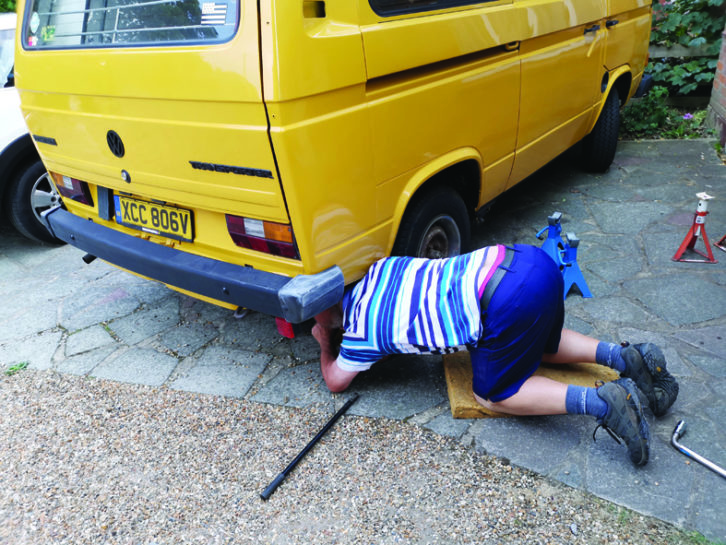
Talking to other owners of older ‘vans has taught me that our experience is entirely normal. Older vehicles are cheaper to buy, but their ongoing costs will be far higher than those of a new ‘van.
This narrows the financial gulf and it’s vital that buyers factor it in, to avoid a motorhome dream becoming a financial nightmare.
We started by setting money aside to cover the cost of unexpected repairs. We worked on the basis of £500 to cover basic maintenance over the course of a year, with a £1000 contingency o solve any major headaches. For a vehicle that is broadly healthy, that should suffice.
We were unlucky that ours was a lot sicker than we had realised – as a result, our costs spiralled. We ended up taking out a personal loan to get Wilma back on her wheels, but despite these improvements, the bills keep on coming.
We stay on top of the maintenance, but failures out of the blue are a fact of life with old vehicles. Having funds set aside helps ease the anxiety.
On the plus side, if you are happy to get your hands dirty, older commercial vehicles are fairly straightforward, so you can save by doing basic maintenance. That’s how we keep costs down, farming out specialist work when required.
Avoid the big motorhome dealerships if you have an older truck. A good independent or mobile service agent will ensure your ‘van is kept in good shape, and the bills will be more commensurate with the value of the vehicle.
What we have learned
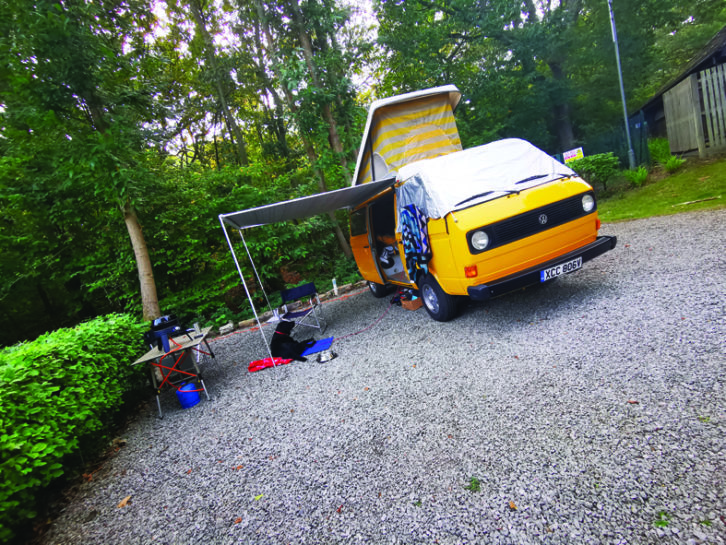
We acquired Wilma because we wanted a camper and a middle-aged VW seemed to fit our needs. On reflection, we’ve spent more than £15,000 on her – more than she is worth – and for that money, we could have got something better to start with. We genuinely didn’t think we could afford to go beyond £8000, yet in the end, we exceeded that and had a lot of tough learning experiences before we got a usable ‘van.
If you are looking for a good-value route into campervan ownership, an older vehicle can make sense, but there are important caveats.
Regardless of the base vehicle, old commercials spring surprises and those tipping into the classic category can be a handful. Old Volkswagens are collectable and desirable, but they are also fragile and quirky. Good examples make for top-drawer campers, but it’s vital to work out your priority before parting with your cash.
The community around old VWs is friendly and like-minded. There are loads of events, groups and specialist suppliers to support you, but you’ll need that support to keep the ‘van running.
If you want to spend more time travelling and you’re looking for a campervan as a means to do so, you will need to get the very best vehicle you can afford. Be pragmatic.
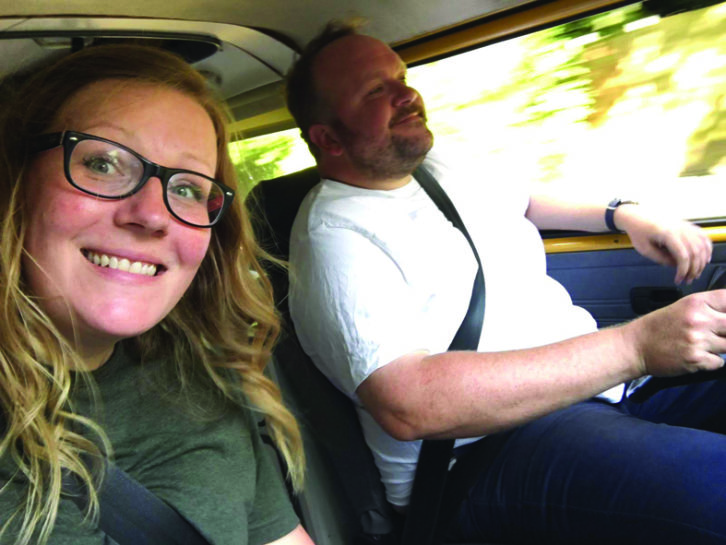
Modern diesel vehicles are both reliable and comfortable, and will eat up the miles on the motorway. If a problem does occur, parts to repair are available off the shelf anywhere and you’ll be back on the road quickly.
Both of these approaches to acquiring your first motorhome are valid choices. Only you can work out which route to life on the road sounds like the closest to your dream. Good luck!
If you liked this… READ THESE:
Best kit to pack for a motorhome toolkit on tour
Cambelt Replacement: Technical Workshop
If you’ve enjoyed reading this article, why not get the latest news, reviews and features delivered direct to your door or inbox every month. Take advantage of our brilliant Practical Motorhome magazine SUBSCRIBERS’ OFFER and SIGN UP TO OUR NEWSLETTER for regular weekly updates on all things motorhome related.
Future Publishing Limited, the publisher of practicalmotorhome.com, provides the information in this article in good faith and makes no representation as to its completeness or accuracy. Individuals carrying out the instructions do so at their own risk and must exercise their independent judgement in determining the appropriateness of the advice to their circumstances. Individuals should take appropriate safety precautions and be aware of the risk of electrocution when dealing with electrical products. To the fullest extent permitted by law, neither Future nor its employees or agents shall have any liability in connection with the use of this information. You should check that any van warranty will not be affected before proceeding with DIY projects.
In the end, the choice of an older VW made the most sense. There are loads of them about, parts are easy to get and what they lack in sophistication, they make up for in simplicity
